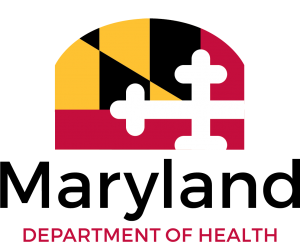Rockville, Maryland, United States
The Valley
Verified
Verified
This provider’s information has been quality-checked by Recovery.com’s Research Team for accuracy and completeness, including center verification through appropriate third-party organizations.
CARF Accredited
CARF stands for the Commission on Accreditation of Rehabilitation Facilities. It's an independent, non-profit organization that provides accreditation services for a variety of healthcare services. To be accredited means that the program meets their standards for quality, effectiveness, and person-centered care.
Provider's Policy
We accept most forms of insurance and have other flexible payment options.
Estimated Cash Pay Rate
The cost listed here ($15,000 - $18,000) is an estimate of the cash pay price. Center pricing can vary based on program and length of stay. Contact the center for more information. Recovery.com strives for price transparency so you can make an informed decision.
About The Valley
The Valley is a privately owned and operated residential treatment center. The first of its kind in Montgomery County, Maryland facility offers an evidence-based inpatient treatment program that integrates addiction treatment, substance use treatment, mental health treatment, and behavioral healthcare with a comprehensive, person-centered, therapeutic method. Residents will feel at home in a rural, relaxing environment.
A Multidisciplinary, Expert Team Of Staff
The Valley has a qualified, experienced, and caring team of counselors, therapists, nurses, physicians, clinical and medical professionals, case managers, and support staff to guide clients’ path to recovery. Low staff-to-client ratios keep the care of each client fully personal and individualized. A small ratio also helps clients progress and bond with others in treatment, and deeply connect them to their counselor and all involved in their tailored treatment program.
Fully Comprehensive Care
Treatment at The Valley takes a therapeutic, evidence-based approach. Clients will receive fully comprehensive care during their time at The Valley, with every area of their recovery tailored to best meet their needs. The Valley also prioritizes physical wellness, offering fitness opportunities inside and outside. A pool and privacy give clients the option to truly relax and experience all the restorative amenities of The Valley to their fullest.
Relax And Recover In Luxury
When clients aren’t engaged in treatment, their rooms at The Valley will provide needed relaxation and rest. Men and women are housed separately at The Valley, in rooms complete with a flatscreen TV and entertainment options.
Experience treatment that’s relaxing and healing at The Valley.
Read More
Insurance Accepted
Provider's Policy:We accept most forms of insurance and have other flexible payment options.

Cigna
Cigna's unique history traces back to 1792, but today they offer services to 190 million customers in 30 different countries across the globe.
See rehabs that accept this provider.
BlueCross BlueShield
<p>A leading healthcare provider serving over 100 million Americans as one of the largest insurance companies in the country.</p>
See rehabs that accept this provider.
Aetna
<p>One of the largest health insurance companies in the US, offering several health insurance options to individuals and businesses.</p>
See rehabs that accept this provider.Amenities at the Valley
The Valley’s campus features three gender specific residential houses. They have a variety of recreation areas, exercise facilities, a swimming pool, gardens, and a horse sanctuary to help keep clients relaxed and entertained in a private, pastoral environment. Both lunch and dinner are professionally catered depending on clients’ individual needs.
Specialized Care for Men and Women
The Valley provides a sense of community during treatment. They house men and women separately to build strong communities and give the best, most relevant care possible. Gender-specific residential programs allow men and women to connect to their respective groups, organically forming bonds and support groups that last long after treatment.

Center Overview
Estimated Cash Pay Rate
Executives
Executive treatment programs typically directly support the needs of people who manage businesses and may provide flexible schedules and office space to allow work during treatment.
Young Adults
Emerging adults ages 18-25 receive treatment catered to the unique challenges of early adulthood, like college, risky behaviors, and vocational struggles.
Midlife Adults
For adults ages 40+, treatment shifts to focus on the unique challenges, blocks, and risk factors of their age group, and unites peers in a similar community.
Professionals
Busy, high-ranking professionals get the personalized treatment they need with greater accommodations for work, privacy, and outside communication.

Treatment Focus
This center treats primary substance use disorders and co-occurring mental health conditions. Your treatment plan addresses each condition at once with personalized, compassionate care for comprehensive healing.

Care Options







Treatment
Specializations
Alcohol
Using alcohol as a coping mechanism, or drinking excessively throughout the week, signals an alcohol use disorder.
Co-Occurring Disorders
A person with multiple mental health diagnoses, such as addiction and depression, has co-occurring disorders also called dual diagnosis.
Drug Addiction
Drug addiction is the excessive and repetitive use of substances, despite harmful consequences to a person's life, health, and relationships.
Opioids
Opioids produce pain-relief and euphoria, which can lead to addiction. This class of drugs includes prescribed medication and the illegal drug heroin.
Professionals
Busy, high-ranking professionals get the personalized treatment they need with greater accommodations for work, privacy, and outside communication.
Approaches
Evidence-Based
A combination of scientifically rooted therapies and treatments make up evidence-based care, defined by their measured and proven results.
Personalized Treatment
The specific needs, histories, and conditions of individual patients receive personalized, highly relevant care throughout their recovery journey.
Therapeutic Community
Therapeutic communities allow patients to contribute to the success and progress of their community, through healthy behaviors or even basic chores.
Wellness
Wellness philosophies focus on the physical, mental, and spiritual wellness of each patient, helping them restore purpose with natural remedies.
Therapies
1-on-1 Counseling
Patient and therapist meet 1-on-1 to work through difficult emotions and behavioral challenges in a personal, private setting.
Art Therapy
Visual art invites patients to examine the emotions within their work, focusing on the process of creativity and its gentle therapeutic power.
Family Therapy
Family therapy addresses group dynamics within a family system, with a focus on improving communication and interrupting unhealthy relationship patterns.
Horticultural Therapy
Gardening can be both meditative and inspiring. This therapy encourages social, emotional, and physical recovery.
Life Skills
Teaching life skills like cooking, cleaning, clear communication, and even basic math provides a strong foundation for continued recovery.
Medication-Assisted Treatment
Combined with behavioral therapy, prescribed medications can enhance treatment by relieving withdrawal symptoms and focus patients on their recovery.
Motivational Interviewing and Enhancement Therapy (MET)
This approach is based on idea that motivation to change comes from within. Providers use a conversational framework that may help you commit to recovery.
Relapse Prevention Counseling
Relapse prevention counselors teach patients to recognize the signs of relapse and reduce their risk.
Conditions We Treat
Pornography Addiction
A person with a porn addiction is emotionally dependent on pornography to the point that it interferes with their daily life and relationships.
ADHD, ADD
ADHD is a common mental health condition caused by dopamine imbalance. Common symptoms include inattention, hyperactivitiy, and impulsivity.
Anger
Although anger itself isn't a disorder, it can get out of hand. If this feeling interferes with your relationships and daily functioning, treatment can help.
Anxiety
Anxiety is a common mental health condition that can include excessive worry, panic attacks, physical tension, and increased blood pressure.
Bipolar
This mental health condition is characterized by extreme mood swings between depression, mania, and remission.
Burnout
Burnout entails mental and physical exhaustion, and leads to a severe lack of fulfillment. This condition is often caused by overwork.
Codependency
Codependency is a pattern of emotional dependence and controlling behavior. It's most common among people with addicted loved ones.
Depression
Symptoms of depression may include fatigue, a sense of numbness, and loss of interest in activities. This condition can range from mild to severe.
Gambling
Excessive, repetitive gambling causes financial and interpersonal problems. This addiction can interfere with work, friendships, and familial relationships.
Gaming
Compulsive gaming is most often a problem for children and teens. The disorder can affect physical health, sleep, and the ability to focus at school.
Substances We Treat
Alcohol
Using alcohol as a coping mechanism, or drinking excessively throughout the week, signals an alcohol use disorder.
Benzodiazepines
Benzodiazepines are prescribed to treat anxiety and sleep issues. They are highly habit forming, and their abuse can cause mood changes and poor judgement.
Chronic Relapse
Consistent relapse occurs repeatedly, after partial recovery from addiction. This condition requires long-term treatment.
Co-Occurring Disorders
A person with multiple mental health diagnoses, such as addiction and depression, has co-occurring disorders also called dual diagnosis.
Cocaine
Cocaine is a stimulant with euphoric effects. Agitation, muscle ticks, psychosis, and heart issues are common symptoms of cocaine abuse.
Drug Addiction
Drug addiction is the excessive and repetitive use of substances, despite harmful consequences to a person's life, health, and relationships.
Ecstasy
Ecstasy is a stimulant that causes intense euphoria and heightened awareness. Abuse of this drug can trigger depression, insomnia, and memory problems.
Heroin
Heroin is a highly addictive and illegal opioid. It can cause insomnia, collapsed veins, heart issues, and additional mental health issues.
Methamphetamine
Methamphetamine, or meth, increases energy, agitation, and paranoia. Long-term use can result in severe physical and mental health issues.
Aftercare
Experience
Personal Amenities
Amenities
Special Considerations
Executive Program
Addiction and mental health treatment for executives typically involves high discretion, greater technology access, and more private, 1-on-1 care.
Flexible technology policies
Centers with flexible technology policies allow professionals to stay in touch with work and give patients a greater sense of connection and normalcy.
Gender-specific groups
Patients in gender-specific groups gain the opportunity to discuss challenges unique to their gender in a comfortable, safe setting conducive to healing.
Activities
Yoga
Yoga is both a physical and spiritual practice. It includes a flow of movement, breathing techniques, and meditation.
Off-Site Activities
Off-Site Amenities
Professional Staff

Catherine McAlpine
Clinical Director, Therapist
Ph.D, LCSW-C

Ashley Abramson
Addiction Counselor
B.S. Psychology

Sheila McDermott
Professional Counselor, Addiction Counselor Supervisor
Master's Degree Mental Health Counseling

Brett Goldenberg
Executive Director
M.S. Psychology & Addiction Treatment
We love hearing about your treatment experience
Help individuals and families seeking treatment by sharing your first-hand experience with this treatment provider. Review Guidelines.






























